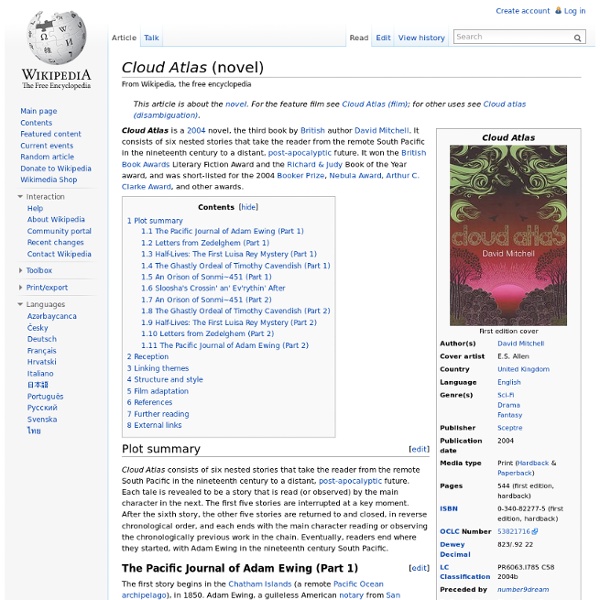



Haruki Murakami – The Wind-Up Bird Chronicle The Wind-Up Bird Chronicle (ねじまき鳥クロニクル, Nejimakidori Kuronikuru?) is a novel published in 1994–1995 by Japanese author Haruki Murakami. The first published translation was by Alfred Birnbaum. The American translation and its British adaptation, dubbed the "only official translations" (English) are by Jay Rubin and were first published in 1997. For this novel, Murakami received the Yomiuri Literary Award, which was awarded to him by one of his harshest former critics, Kenzaburō Ōe. Publication history[edit] The original Japanese edition was released in three parts, which make up the three "books" of the single volume English language version. Book of the Thieving Magpie (泥棒かささぎ編, Dorobō kasasagi hen?) In English translation, two chapters were originally published in The New Yorker under the titles "The Zoo Attack" on July 31, 1995, and "Another Way to Die" on January 20, 1997. Plot summary[edit] The novel is about a low-key unemployed man, Toru Okada, whose cat runs away. Translation[edit]
Scarlett Thomas – The End of Mr. Y The End of Mr. Y is a novel by British author Scarlett Thomas. The book tells the story of Ariel Manto, a PhD student who has been researching the 19th century writer Thomas Lumas. Central to Lumas' book is the "Troposphere" – a place where all consciousness is connected and you can enter other people's minds and read their thoughts. The book mentions that her surname is fictitious and based on an anagram; Ariel Manto is an anagram of I am not real.[1] As have Janette Turner Hospital and Andrew Crumey, the writer explores the relationships between quantum physics and post-modernist and deconstructionist theory. It was long-listed for the Orange Prize for Fiction in 2008,[3] sold 150,000 copies, and won a Nibbie award for best cover.[4] References[edit] External links[edit]
Danny Wallace – Yes Man Danny Wallace, a freelance radio producer for the BBC in London, takes three simple words uttered by a stranger on a bus—"Say yes more"—as a challenge and says "yes" to everything for a year. He says "yes" to pamphleteers on the street, the credit card offers stuffing his mailbox and solicitations on the Internet. He attends meetings with a group that believes aliens built the pyramids in Egypt, says "yes" to every invitation to go out on the town and furthers his career by saying "yes" in meetings with executives.[1] David Lodge – Therapy The story concerns a successful sitcom writer, Laurence Passmore, plagued by middle-age neuroses and a failed marriage. His only problem seems to be an "internal derangement of the knee" but a mid-life crisis has struck and he is discovering angst. His familiar doses of cognitive therapy, aromatherapy, and acupuncture all offer no help, and he becomes obsessed with the philosophy of Kierkegaard. The novel is divided into four parts. In the first part, Tubby starts writing a journal triggered by a description he had to write for his cognitive behavior therapist. The dramatic monologues seem to present an outward look on Tubby but the reader finds out later that the monologues were written by Tubby himself which ruins the objectivity of this part. In the third part, the reader is presented the memoir about Maureen, Tubby's first love and his first girlfriend. The fourth part is written by Tubby looking backward on the events. Köhler, Stefanie & Hotz-Davies, Ingrid.